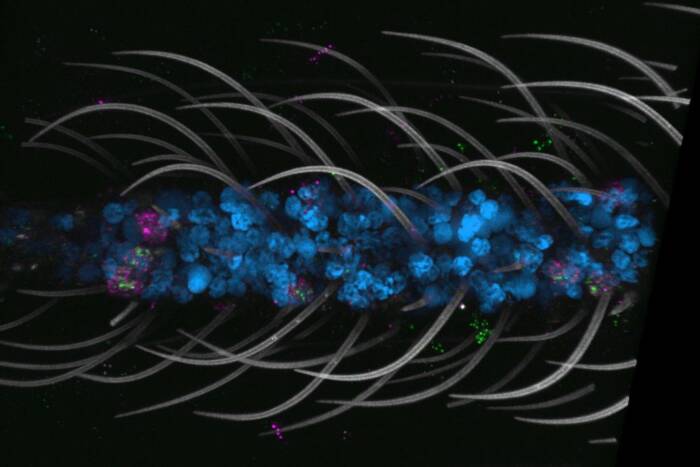Karolinska collaboration program is revived
by ZACH VEILLEUX
The university has restarted a dormant program begun in the early 1980s to fund exchanges between Rockefeller University and the Karolinska Institute in Sweden. Under the terms of new agreements signed with Karolinska in June, selected postdocs and technical staff from Rockefeller will be able to travel to Sweden for experimental work and training, and a lecture program will be established that will fund travel for Rockefeller and Karolinska faculty members to speak at each other’s institutions.
The Karolinska Institute, located outside Stockholm, is one of Europe’s most prestigious biomedical research universities. Its focus on basic and translational research and long tradition of making fundamental discoveries in biology make it a natural counterpart to Rockefeller. Over the years there have been many cross-continental interactions and collaborations.
“Rockefeller and the Karolinska Institute have a history of useful exchanges, and the newly revived programs will build on that, enabling members of both scientific communities to once again work collaboratively within a special system of support,” says Mike Young, vice president for academic affairs.
The original Rockefeller exchange program with Karolinska was begun nearly three decades ago with the establishment of the Gunnar and Lillian Nicholson Exchange Fund for Biomedical Scientists. In 1982, Mr. Nicholson, a Swedish immigrant to the U.S. who made his fortune in the paper industry, bequeathed funds to endow the annual exchange of selected scientists between the two institutes in perpetuity. Over the years, the program has taken many forms, including occasional lectures and symposia, stipends that paid for Rockefeller faculty, students and postdoctoral researchers to spend time at Karolinska, and fellowships that brought members of the Karolinska community to Rockefeller. Torsten Wiesel, president emeritus of Rockefeller and an alumnus of Karolinska, has played a role in bringing the two institutions together over the years.
Since 2004, however, the program has been inactive, and funding for the exchanges has accrued without being spent.
The new agreements, facilitated by Dr. Wiesel and signed this summer by Rockefeller President Paul Nurse and Karolinska President Harriet Wallberg-Henriksson, specify that the exchange will consist of three components. A lecture program will pay travel expenses for one Karolinska faculty member to speak at Rockefeller and for one Rockefeller faculty member to speak at Karolinska each year. The speakers, who will also spend two to five days meeting with faculty and students and giving informal presentations, will be chosen by the host institute from a list of between five and 10 candidates nominated by their faculty.
Under the postdoctoral fellowship program, a one- to two-year fellowship will be awarded to a student from each institute every other year to study and conduct research at the other institute. Students or newly appointed postdocs at either institute may apply for the program, and applicants will be selected by a faculty committee. “This component of the exchange program has already begun, with Rockefeller and the Karolinska Institute making their first calls for postdoctoral applicants,” Dr. Young says.
Finally, the Nicholson Exchange Program will provide support for short term technical and research exchanges by scientists at many levels, including doctoral students, research assistants and resource center personnel. The visits can last between one and 12 weeks, depending on the scope of the work proposed.


